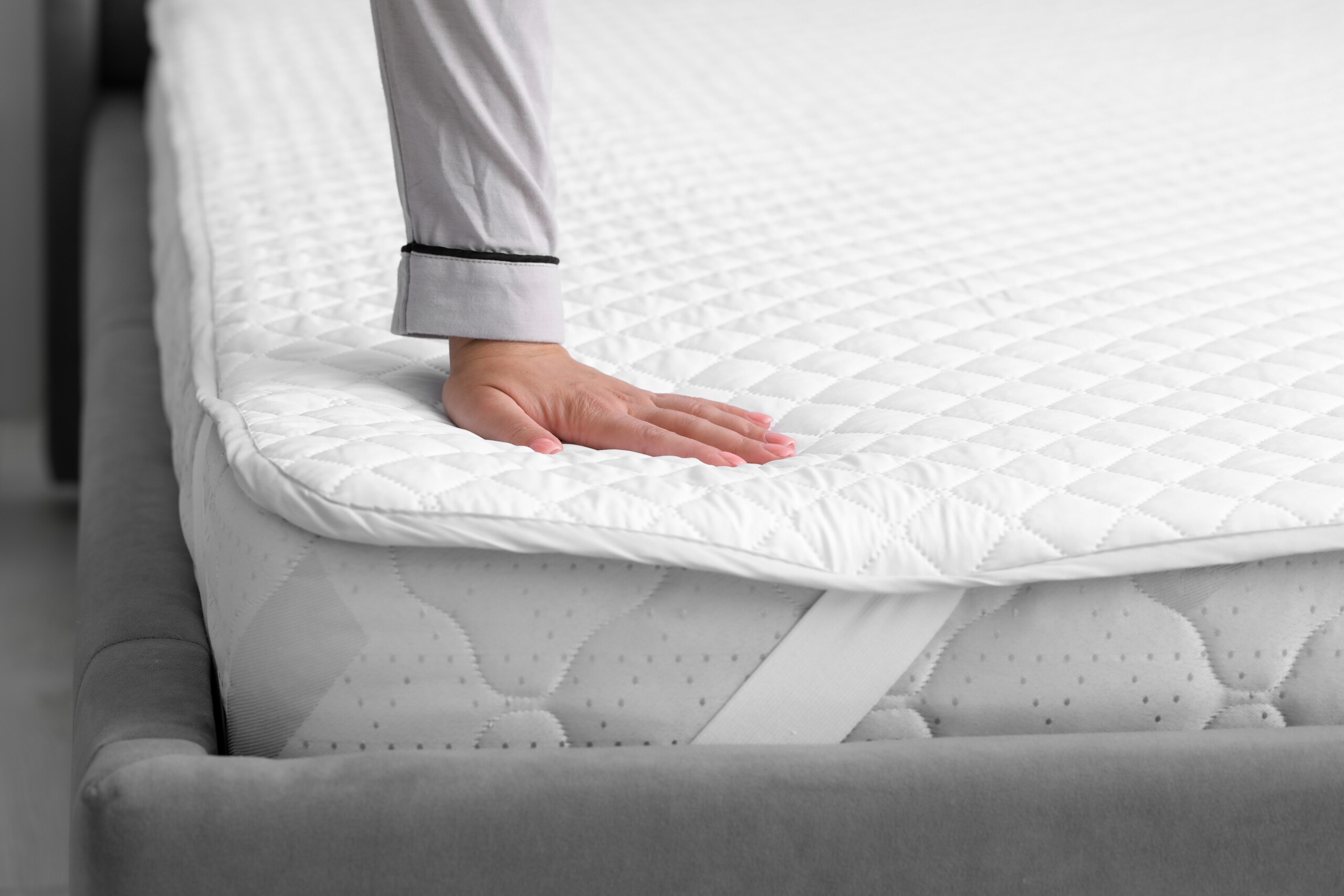If your mattress isn’t supporting you correctly while you sleep, it can give you back pain and sstiffness. You will usually feel this pain when you are trying to sleep, in the morning, or it will wake you up at night. It is important to remember that you can also wake up with back pain, even if you have a good mattress, if you have inflammation in your spine. This can be from recent exacerbations of back pain causing temporary inflammation, degenerative changes in your spine, inflammatory conditions such as ankylosing spondylitis or polymyalgia rheumatica, or occasionally more serious issues such as osteoporotic fractures of the vertebrae or metastatic cancer. In general, inflammatory conditions take at least half an hour to be less stiff in the morning and metastatic cancer is likely tol feel stiff and painful throughout the day and night. Osteoporotic fractures can be pain -free or very painful and stiff. It is best to check if your night time or morning pain and stiffness with your physiotherapist or doctor to differentiate betwen these causes of night pain as it may not be your mattress that is causing the symptoms.
If you try other people’s mattresses or hotel mattresses and find your symptoms resolve or are less, it is unlikely that inflammation in your spine is the cause of your night pain. This is a great way to decide on a mattress that is suitable for you. Take a note of the mattress brand and model so you can order one the same for at home. If there is a mattress topper, note this as well as this can also make quite a difference to your symptoms.
If you haven’t found a mattress that suits you in a hotel or friends house, try out mattresses in a physical store, whether you buy there or not. Spend at least 10 minutes on each mattress trying out your different sleeping positions as it takes time to feel if the mattress suits you or not. Remember when you are trying the mattress that it most likely needs to be slightly firmer than your current mattress if it is giving you pain and stiffness at night or in the morning. How firm depends on what your body is currently used to. If you go from a relatively soft mattress to a very firm one, you are unlikely to find this comfortable. However, you can always buy a firmer mattress and a mattress topper (either memory foam or cotton) to fine tune the support level if you find it is too firm.
Have somone with you to see if your spine is straight in sidelying with your hip and shoulder sinking into the mattress a little. On your back, feel for it your bottom and shoulders sinking into the mattress a little when lying on your back. You should feel the mattress suppoirting your lower back without it being too arched or flat. Try lifting and turning the mattress while in the store as mattress weights vary enormously. You will need to be able to turn the mattress at home without injuring your back, neck or shouders.
More expensive does not necessarily mean a better mattress for your spine. Some of the cheaper mattresses can be good too, especially if they are firmer. Cheaper, softer mattresses do not usually last well however. Some mattress suppliers allow you to return or exchange your mattress if you are not happy with the one your bought. Bear this in mind when purchasing a mattress.
Is there any evidence for what mattresses are best? In general terms, yes. Medium firm mattresses are better than soft or firm accoring to a study in 2003 by Kovacs et.al. However, remeber that if you have specific spinal issues this may vary. It is best to see a physiotherapist who can diagnose your back pain and make recommendations on sleeping positions and mattresses.
References:
Kovacs FM, Abraira V, Peña A, Martín-Rodríguez JG, Sánchez-Vera M, Ferrer E, Ruano D, Guillén P, Gestoso M, Muriel A, Zamora J, Gil del Real MT, Mufraggi N. Effect of firmness of mattress on chronic non-specific low-back pain: randomised, double-blind, controlled, multicentre trial. Lancet. 2003 Nov 15;362(9396):1599-604. doi: 10.1016/S0140-6736(03)14792-7. PMID: 14630439.


